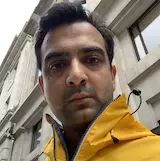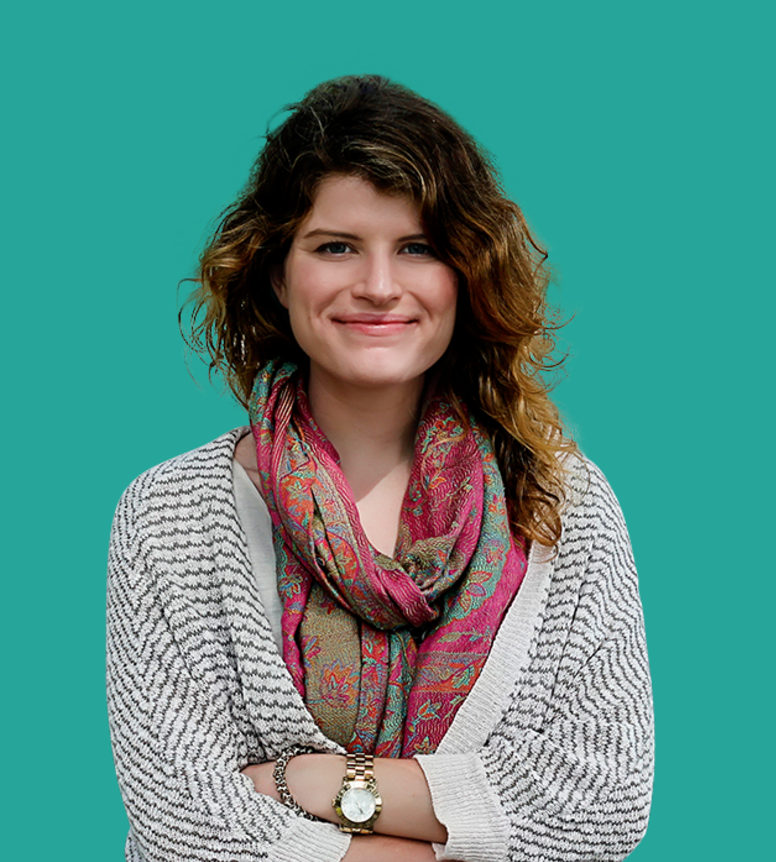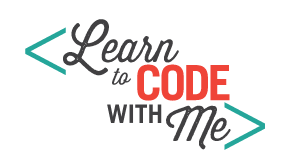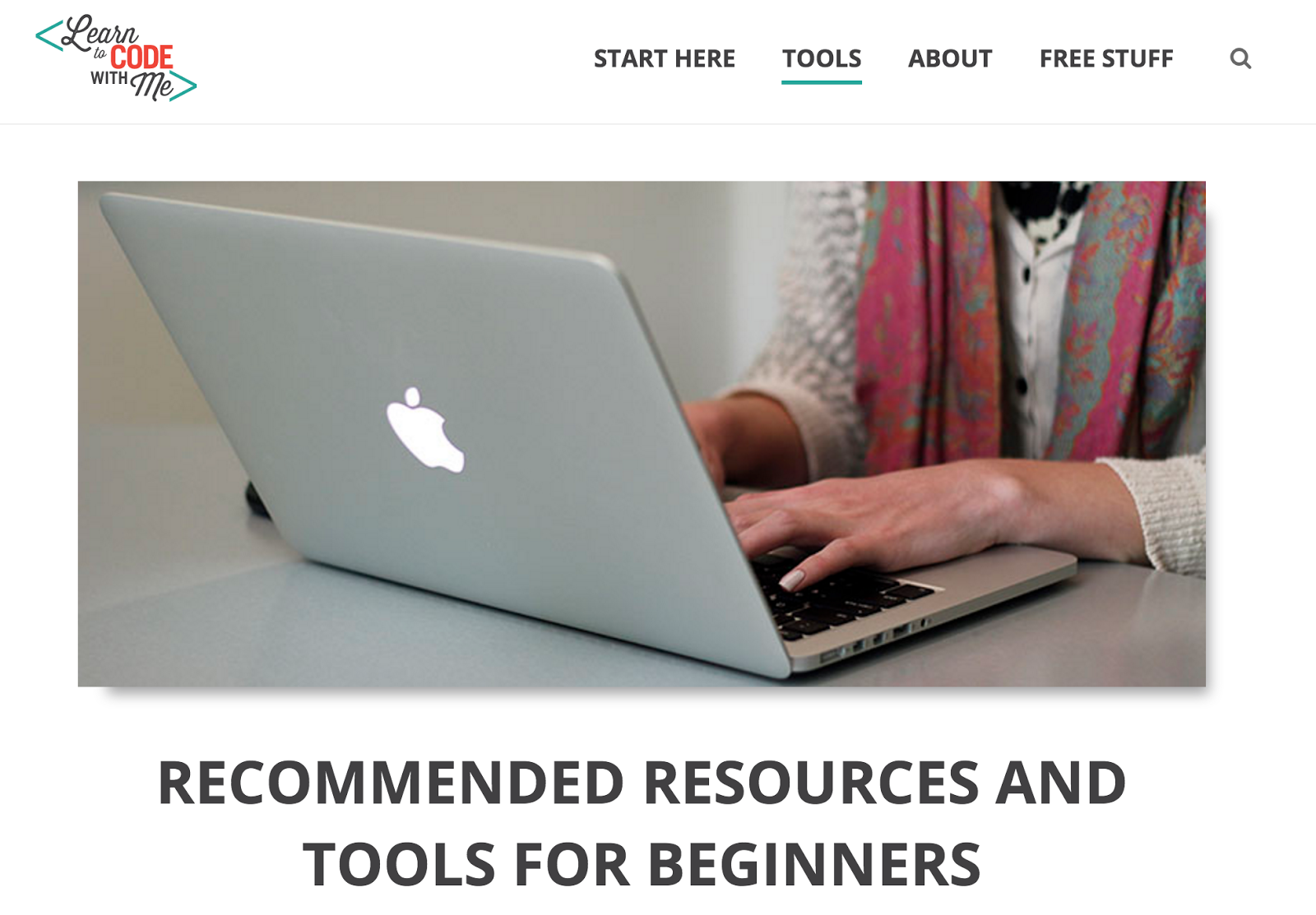Please subscribe to the Learnetto Podcast in iTunes and rate us to help us reach more people.
In episode 3 of the Learnetto Podcast, I spoke to Laurence Bradford, a self-taught developer, who has been teaching herself how to code for 3 years. Having experienced the difficulties of the learning process first-hand, Laurence understands the most effective ways to obtain tech skills. Her website Learn to Code With Me, now receiving 50,000 unique visitors a month, aims to help those in the same position she was a little while ago. She also runs a popular Facebook group, offers career advice and has written a book.
Hrishi Mittal (HM): Hi Laurence, how are you doing?
Laurence Bradford (LB): I’m doing great, how are you?
HM: I’m very well, thank you. Thank you for joining us today, it’s really exciting to have you on the show. I would like to start off by asking you to introduce yourself.
LB: Yeah, my name is Laurence Bradford and I have this site Learn to Code With Me. I basically help people who are learning to code by putting together resources about where to learn and what to learn. I do some other things on the side: I’m the careers expert at About.com and I also run a really active Facebook group called Newbie Coder Warehouse, and that’s for people who are teaching themselves to code.
HM: Oh, wow, I didn’t know about that last one, Newbie Coder Warehouse, I’ll make a note of that! Great, so tell us a bit about your background; how did you get into this and where did you start?
LB: So after college, I wasn’t exactly sure what I wanted to do. I thought I wanted to go into economic development, specifically in Asia and even more specifically in South-East Asia. So after college, I moved to Thailand and I taught English for 6 months and then I got a job afterwards, at a think tank in Thailand. It was doing what I thought I wanted to do.
As it turns out, it wasn’t what I thought it was going to be, so while I was working there, I started to teach myself to code.
I also had a lot of free time at this point after working on the weekends because all of my friends actually left Thailand! So I was alone at this point, living by myself in Bangkok, so I had a lot of time. One thing led to another and now here I am, almost 3 years later.
As it turns out, it wasn’t what I thought it was going to be, so while I was working there, I started to teach myself to code.
I also had a lot of free time at this point after working on the weekends because all of my friends actually left Thailand! So I was alone at this point, living by myself in Bangkok, so I had a lot of time. One thing led to another and now here I am, almost 3 years later.
HM: That sounds like an interesting start! So, 3 years - that’s how long you’ve been working on your website?
LB: Not my website; that’s how long I’ve been learning how to code for. There were a few times before I sat down and really taught myself to code where I dabbled with Wordpress, I also did some stuff with Magento if anyone is familiar with that - it’s an e-commerce CMS. So, I did some of these things before, but it’s been about 3 years since I’ve been teaching myself how to code.
HM: So, what sort of things do you know now, and what areas have you focused on when learning how to code?
“I thought I wanted to go into economic development (...) it wasn’t what I thought it was going to be, so while I was working there, I started to teach myself to code.”
LB: I was a bit misdirected early on which is part of the motivation for me starting this site in fact. I started to learn a lot of things, with a lot of trial and error. I would start courses and not finish them. It took me a while to really realise what I enjoyed and what I really wanted to do and that’s mostly in the front-end web development realm. I also know quite a bit about Wordpress. So that’s really the type of stuff I specialise in; HTML, CSS, some Javascript, Wordpress. That’s really what I do right now.
HM: Do you do any back-end stuff?
LB: No, so I can write PHP because of Wordpress. I know a bit about it and I know how to do stuff on the back-end of Wordpress sites. But I don’t build full-scale applications on the front-end and the back-end. I really only look at the front-end. I have taken courses and gone through books that talk about the back-end, but then I realise that that’s something I’m not as interested in and I kind of chose a path to be more of a specialist rather than a generalist.
HM: Yeah, so I read on your ‘About’ page that you did some Python?
LB: Python, yeah. That was the first programming language I learned or tried to learn.
HM: Yeah, that seems to be a popular first language to learn. Great - so tell us about the website specifically, and at what point did you think you needed to start the site?
LB: I had been learning on and off for about a year at this point, and there had been a few times when I would get really frustrated and just stop learning altogether, maybe for 2-3 weeks. Then, finally I was getting back into the swing of things again, and I thought a great way to help me stay motivated and hold myself accountable would be to start a blog and to write about it. When I actually started the site, this was in very late April of 2014, so basically May 2014. The first few months that’s what I did, but over time the blog evolved and became less about me and more about other people and their journeys. Also, putting together tips and resources for people who are trying to figure out what to learn and where to learn.
HM: And that’s your current focus now?
LB: Yeah, so it’s not about documenting my journey, it’s about helping other people who are just starting out teaching how to code.
HM: Ok great, and do you have other people writing for the website or is it just yourself?
LB: I do have some guest posts and I’m very open to having guest posts from all sorts of people as long as it relates to coding and is at a beginner maybe to intermediate level. But for the most part, the content on the site is written by me.
HM: So what has your experience been with the site? When it became more than a personal blog, how did people respond to it?
LB: It’s been doing really well, I guess. When I first started out, I didn’t have a huge vision for the site or anything, again, it was more of a personal blog. If you go back and read some of my older posts you can definitely see that, you can see the switch over time. In fact, there have actually been some things I have deleted, or am going to start deleting because it’s not on brand anymore, it’s really kind of irrelevant and doesn’t fit with the site. Sorry, I digressed a little bit there! But, that’s a project I’m working on now, going back and tweaking some of those things. But once I started making that shift; helping people and talking about the resources, not myself and my journey, I really started to notice an increase in emails, in tweets. Really it was the emails from people - and I still get them - saying: “Oh, I had no idea what to do and then I found your site and feel so relieved now and I have much more of a path to follow.” So once I began getting those kind of emails, I thought ok, this is something good that I should definitely pursue because it is helping people.
HM: Sure, so what’s the site’s reach now; how many subscribers or followers do you have?
LB: So right now, I’m getting about 50,000 unique visitors a month, so that’s the metric I want to use - unique visitors. I know with Google Analytics, there’s a bunch you can use, but that’s the one I focus on. In terms of subscribers, I just hit 10,000 really recently, even last week. I get some every day now because I have things set up in a pretty automated way. Lots of subscribers have come in the past few months, because when I first started this site, I wasn’t collecting email subscribers. But to answer your question: 10,000 email subscribers and 50,000 uniques a month.
HM: That’s a sizeable audience! Does the audience help you decide what you write about?
“I really started to notice an increase in emails, in tweets (...) and I still get them - saying: ‘Oh, I had no idea what to do and then I found your site and feel so relieved now and I have much more of a path to follow.’
LB: There’s definitely a lot of content on the site that has been inspired by questions that people have asked me in the past, or sometimes it’s not just one person, it’s a bunch of similar questions that I keep getting, so I say maybe a blog post on this topic would be good. Now since I’ve been doing this for some time, and I’m not just starting out, I have a lot better sense of the blog posts that would do well on the site versus the ones that maybe wouldn’t be as popular. Of course, it’s always experimenting. Some things work and sometimes things don’t work.
HM: So how often do you write?
LB: Before 2016, I wasn’t very consistent. It’s something that I should have started doing sooner, but I never really made that a priority - I was looking at some other things. So, I would only write once every 4-6 weeks. However, if you look at my posts most of them of them are very long, especially the newer ones. I’m not sure what the average word length is, but it’s definitely above 2000 words. I have some that are like 4,500 words. Now I’m posting every other week, so twice a month, and I always post on a Wednesday, so every other Wednesday. I hope to eventually bring that to once every week, so 4 times a month.
HM: I want to dig a little bit deeper into the motivation, because what I found so interesting about your site and why I contacted you to be on the podcast, is that your site is very unique in that it is focused upon the students, and it addresses something that other learning sites ignore, which is that there’s a lot of stuff out there, but how do you actually use it? What do you learn and how do you go about the process? Yeah, so I just wanted to learn a bit more about the specific problems you faced when learning and what informed your decision to start the site.
“There’s definitely a lot of content on the site that has been inspired by questions that people have asked me in the past, or sometimes it’s not just one person, it’s a bunch of similar questions that I keep getting, so I say maybe a blog post on this topic would be good.”
LB: Yeah, so when you said about how a lot of the sites out there - the learning platforms or the courses, there’s so many options nowadays - a lot of them focus just on the skills, and teaching the skills and the technologies but not so much on the guidance on what you can do with those skills. So what I find is, a lot of people (and I was one of these people) try to learn 100 different things at once. I was like: I’m going to learn this and this and this all at the same time. I think that is not the way to go about it at all. You really need to think about what your end goals are and what you can learn to help you reach those end goals. Because to me, coding is a means to an end.
Say if you want to start your own startup, well if that’s your goal, you should probably learn a certain set of technologies based on that.
Whereas, if your goal is to get a full-time job as a UX designer, the things you would learn would be completely different. So, figure out what your end goal is then reverse engineer it. Of course,
I hear this all the time; a lot of people say I don’t know what my end goal is, I’m unsure.
Honestly - even if you’re unsure - it’s better to pick something you think you might want to do because once you have that idea, it’s so much easier to get a clear idea of what you should be learning, so that you’re not learning 50 different things at once.
Say if you want to start your own startup, well if that’s your goal, you should probably learn a certain set of technologies based on that.
Whereas, if your goal is to get a full-time job as a UX designer, the things you would learn would be completely different. So, figure out what your end goal is then reverse engineer it. Of course,
I hear this all the time; a lot of people say I don’t know what my end goal is, I’m unsure.
Honestly - even if you’re unsure - it’s better to pick something you think you might want to do because once you have that idea, it’s so much easier to get a clear idea of what you should be learning, so that you’re not learning 50 different things at once.
I hear this all the time; a lot of people say I don’t know what my end goal is, I’m unsure.
HM: Yeah I can definitely relate to that: I started programming with C just because I wanted to see what it was all about. But that never stuck; the thing that stuck was when I wanted to build a website, so I learned some basic HTML and CSS. That was about 15-20 years ago now, but since then everything has been project based; picking up stuff because you have a specific goal in mind.
LB: Yeah that’s a great way to say it - project based and picking up things based on whatever your goals are. So that’s how I think about it now. I try to steer people in the right direction, but ultimately if a person is dead set on learning Java, C++, Javascript and 10 other things all at the same time, then that’s their decision! I think it’s best to completely focus on one thing at a time.
“You really need to think about what your end goals are and what you can learn to help you reach those end goals. Because to me, coding is a means to an end.”
HM: Are you still learning new stuff at the moment?
LB: I’m still learning a lot of new stuff, however not so much that is related to coding or web development per se, because again I learn things now that are based on what my goals are. So, here’s a real life example of something: I’m actually starting my own podcast, later this year, not until the spring. My tentative launch date is April 26th, hopefully I can make that - it’s a Tuesday! I know nothing about podcasting, so I signed up for a podcast course; it’s pretty intense - there’s a lot of stuff that goes into it. It doesn’t relate to web development, however I would argue that there are certain parts of podcasting that are technical. I mean, maybe it’s not writing code but you have to use a computer. So, I’m still learning new things, it’s just goal-oriented. I don’t learn new things just to learn it, because to be completely honest, I just don’t have time to do that anymore. I think a lot of people learning to code, especially when they are in college or fresh out college have a lot of time on their hands - I know I did, because I was alone in Bangkok without any friends or family. But for most people that’s not the case; they have families, they have responsibilities, they have full-time jobs. So, that’s how I feel now, I only really learn things when I need to reach my goals.
HM: You teach through your site in the form of blog posts, do you teach any courses?
LB: I have an e-book; I don’t know if you’re doing a show notes page for the podcast, but I could send you a link so people could see what that’s about. My e-book, it came out in late February and that’s all about using Linkedin as a web developer or web designer. I also have a course - it’s not available right now - but I’m going to be re-opening it, probably in May. That’s just specific to building a portfolio as a web developer, so it does have some technical components in it, but then it also talks about content and laying out the site and is really just a deep dive into building a portfolio site. So, to answer your question, I do have a book and I do have a course, but they’re not broad coding categories.
HM: From your point of view, because you’ve been on both sides; as a teacher and a student, what could be done better by online teaching platforms? Because here at Learnetto - which is a very new platform - we are trying to do some things differently, and focus upon improving outcomes for both teachers and students. So, I’m really interested to hear from your perspective how things could be better?
LB: That’s kind of a hard question to answer because it really depends upon the person. People learn in different ways, some people are visual, some are auditory, others have to do things in order to learn. That’s definitely a factor. However, I think having an online course that incorporates a lot of those different learning styles, so it’s not just one, is the best approach to take. Another thing to think about is the price point; there are some affordable options online, and then there are also some much higher priced options online. I think for a student paying 10, 20, 30 bucks per course, you really can’t have that high expectations because the financial investment isn’t that big. However, if you are paying for a more premium online coding bootcamp at maybe 500 dollars a month, or 1000 dollars a month or some of them are even about 10,000 dollars. That then should definitely be way more comprehensive, it should have support, maybe a mentorship component, or maybe a one-on-one study group component to it, as well as real life projects or group projects you can build - a whole slew of other things. I think that there’s a lot of awesome resources out there, so for the most part with my experiences, taking courses - I don’t think there has ever really been a bad experience.
HM: The standard is pretty high generally. In my experiences taking courses online, I find with some other platforms, it’s often very much about selling you the course, then there’s no re-engagement. I think some of them have strict rules about teachers communicating with students and so you drop out and the completion rates are very low for students. So this is something that I’m very aware of; I know it’s a very difficult problem, but I’d really like to crack that! So, on the price point there’s a whole range between really cheap and really expensive, where does your course sit there?
“People learn in different ways, some people are visual, some are auditory, others have to do things in order to learn.”
LB: Yeah, so for the e-book that I mentioned before that’s just a very low price point - 7 dollars. I probably will increase that price for that eventually, but the thing with e-books is that it’s hard to charge a lot because people are used to getting e-books for 5 dollars or less on Amazon Kindle. But with the course I only launched it for a certain amount of time then I closed it. This was back in September. I’m going to be re-doing the course then re-launching it in May. When I first launched it, the price point was $64.99, and that was just a one-time fee, it wasn’t subscription or anything. When I re-launch it and I’m not 100% certain yet, but I’ll probably be charging $97 for the basic version. Then what I’m thinking about doing is having two different versions of the course, basic and premium. The premium would come with more features and extra videos, or maybe even a one-on-one skype call with me, or something to that effect. That, I’d charge significantly higher for then.
HM: So, what form is the course in?
LB: The course is mainly videos and worksheets. There are some other downloadable lists and things like that.
HM: Ok sounds good, I look forward to it! You said it’s re-opening in May?
LB: Yeah, I think I set a date of May 16th tentatively, but that could definitely be pushed back a little bit. But, hopefully in May it gets re-opened.
HM: So, coming back to learntocodewith.me, where do you see yourself taking this project in the future? What are your plans for it?
LB: So for the rest of this year, 2016, I definitely want to continue growing it and when I say growing it, I mean keep writing content on the site and increasing viewership and increasing subscribers. I would also like to create some more products in the future, and these products may not be on the Learn to Code With Me blog but as an offshoot. So the way I think about it is: learntocodewith.me is the treetrunk and then I have these things that I’m slowly adding that form the branches. I have the e-book, the course, the podcast - however the podcast will be on the learntocodewith.me site - it’s not going to be separate, and then I have the Facebook group. So, I have these little things, but Learn to Code With Me is a home base. I would like to keep on building these other things that I’m creating off of the site as well as the site itself, and then hopefully in the future I can get into other things. For instance, I’m really interested in the non-profit space, and encouraging kids to learn to code. So, hopefully I could do something that relates to that in the future.
HM: That sounds great; a lot of interesting things. I hope your site grows in 2016; I’ll definitely be promoting it. I’ve been sharing some of your blog posts on our Twitter account, and will be doing more of that. I would love to know what your vision is for the future of tech education, either online or even offline.
LB: I guess it depends where you live. My perspective is based in the US because that’s where I’m from and that’s what I know. Right now, there’s a really big push to get more computer science education in schools. I don’t know the numbers off the top of my head; they change so often but really computer science isn’t offered in a lot of schools. In my high school, we didn’t even have a computer science course; there’s an AP computer science course and we didn’t have that. That would be awesome, exposing it to more people at a younger age so that when they do get to college they know that Comp Sci and IT are options for them. In my situation, because I never had exposure to it, I never even considered studying it in college or even pursuing it in any way. It took me a really long time for it to click; I kept reading about it in the news and the demand for people who knew how to code, then finally I began to teach myself. So as far as formal education goes, that’s what I hope to see in the future. As far as online education goes, I think things are going really well. There are new learning sites popping up all the time, and I don’t think that’s a bad thing. It’s great when people have a lot of options. It can become overwhelming when people have so many options and don’t know how to choose, but that’s why I have my site and give people a smaller list of things to choose. When people email over their questions, I’m super specific and say don’t worry about where you’re taking the course, just learn the material. There are so many HTML and CSS classes out there; there are probably even thousands from Udemy to Treehouse to Codeschool. Just get the skills and don’t spend too much time worrying about where you are getting the skills, especially if it’s a free or affordable option.
“It can become overwhelming when people have so many options and don’t know how to choose, but that’s why I have my site and give people a smaller list of things to choose.”
HM: Yeah, we have an HTML and CSS course as well! I agree with you in respect to school education; I think that in the UK there have been a lot of initiatives, but there is still a long way to go. A lot of people don’t know it’s an option, especially not a career option. Well that’s all the questions I have for you today, that was really interesting to get your perspective on all of these things. One final thing - tell our listeners how to find and connect with you online!
LB: Yeah sure! Find me at learntocodewith.me and you can also find me at my Facebook group which is Newbie Coder Warehouse. So check me out there.
HM: Great, we’ll include all of that in the show notes. Thank you, pleasure talking to you.
LB: Thank you, pleasure talking to you too.
Please subscribe to the Learnetto Podcast in iTunes and rate us to help us reach more people.





